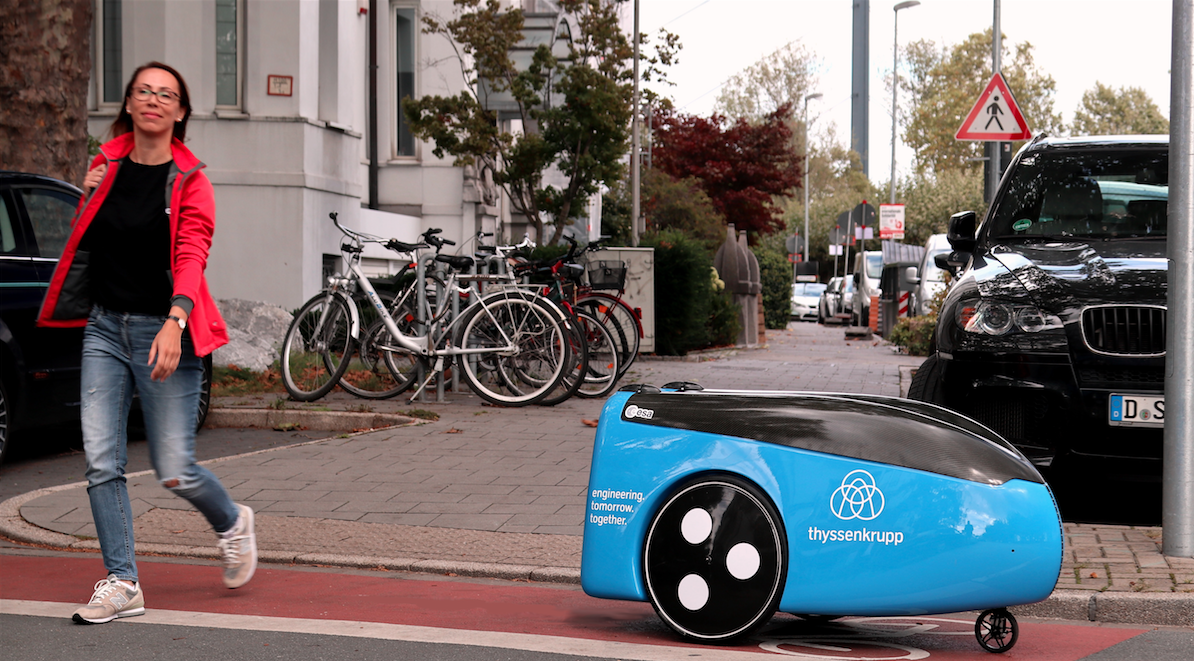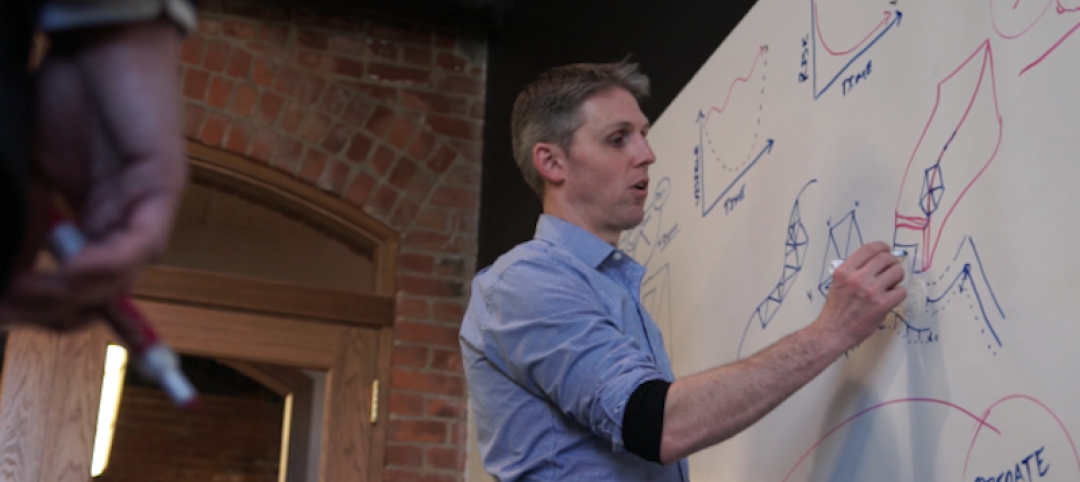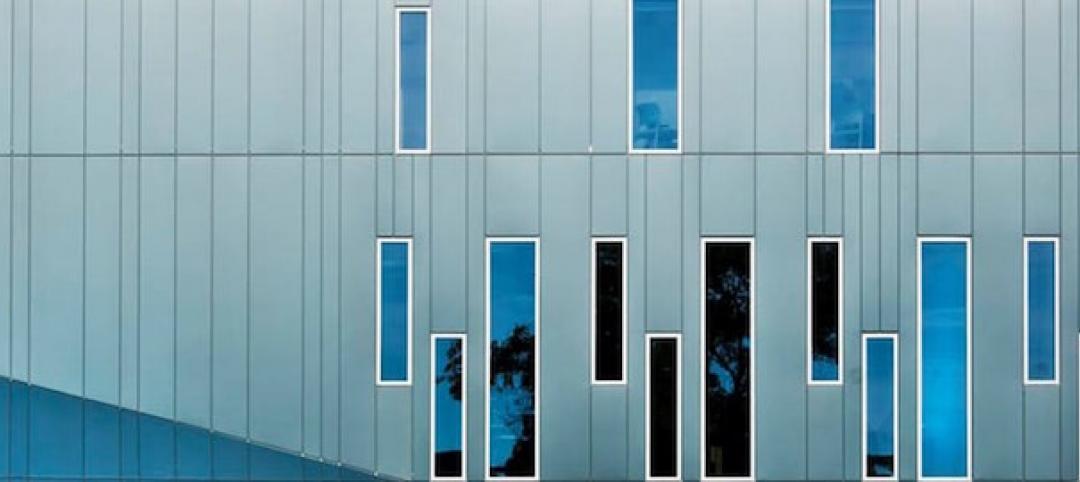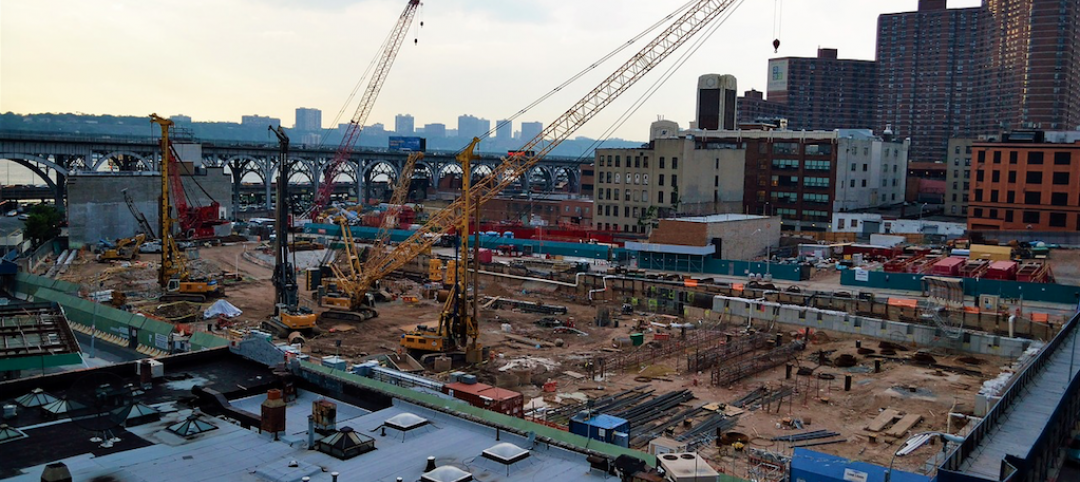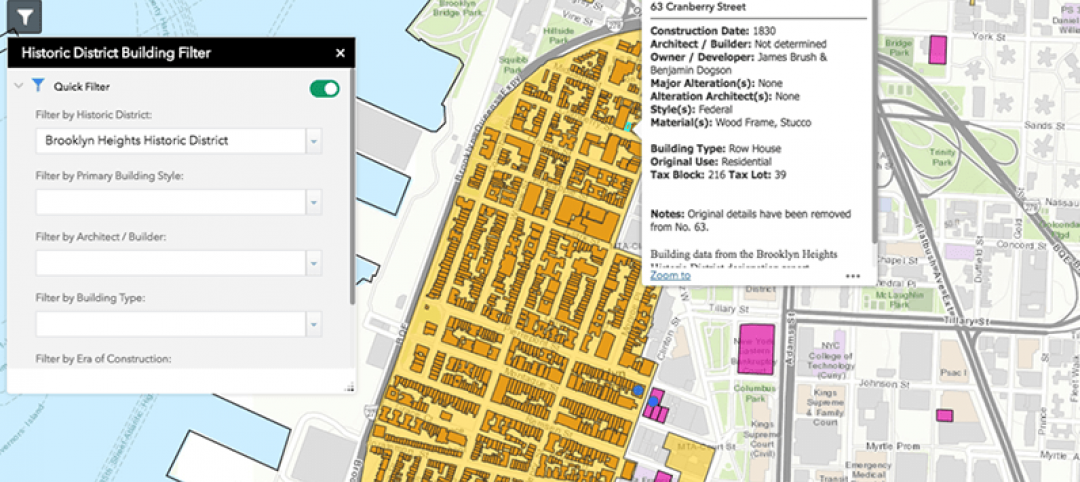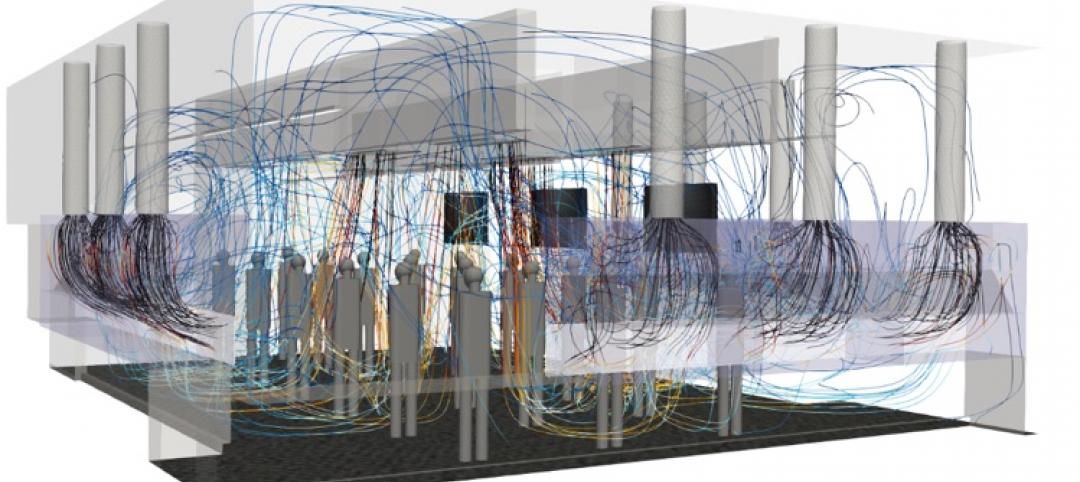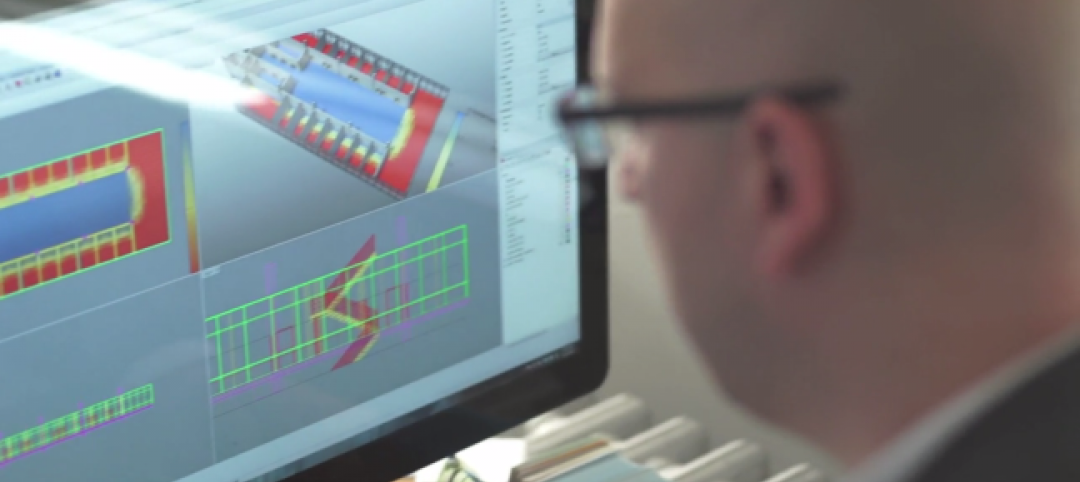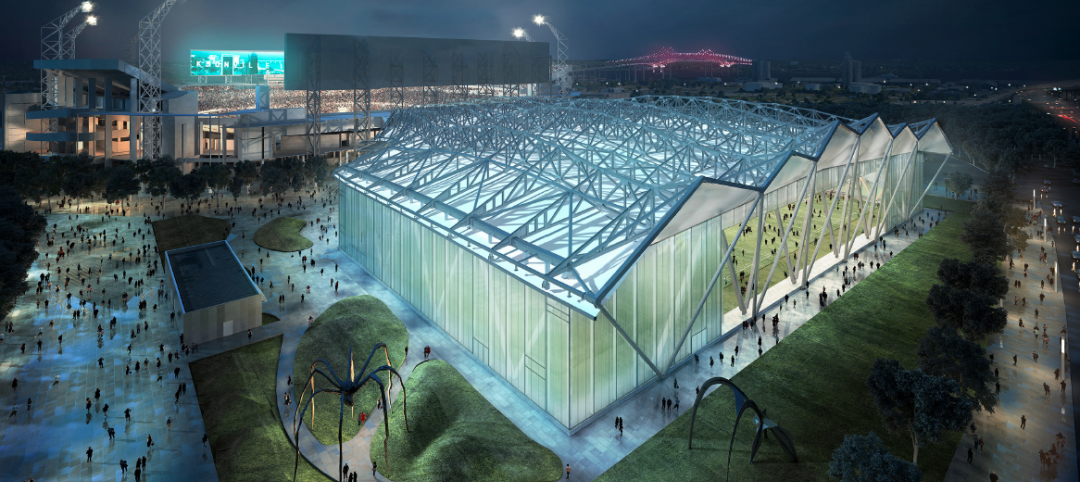Last week, vertical transportation giant thyssenkrupp debuted a novel technology that could transform its parts and materials supply chain in dense urban environments.
As part of a U.S. Senate Field Hearing on automotive innovation, January 24 at the Washington (D.C.) Auto Show 2018, thyssenkrupp showcased its newly developed self-driving delivery robot. Co-developed by software maker TeleRetail, the system is designed to transport spare parts and materials to field technicians working in busy, congested urban markets.
During elevator and escalator servicing sessions, spare parts are needed quickly, and a technician either has to drive back to base in his or her service vehicle or have it delivered by a colleague. With increased traffic clogging up city streets, the pressure on the supply chains is rapidly increasing, according to thyssenkrupp.
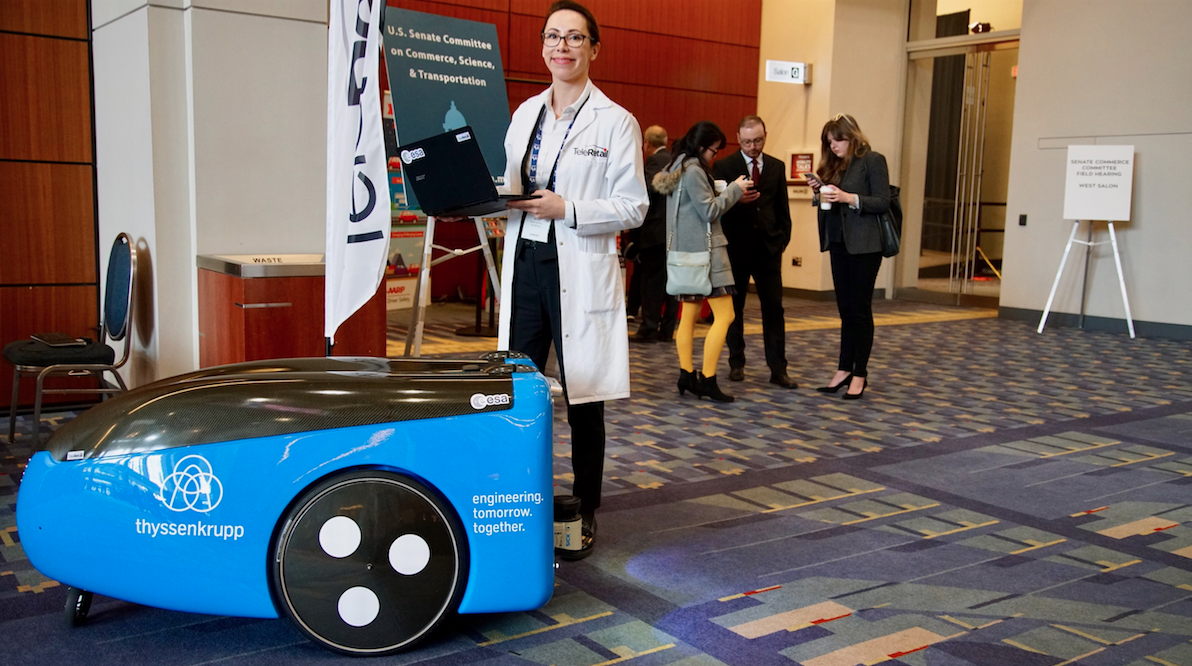 Xenia Scholl of TeleRetail poses with the delivery robot at the Washington (D.C.) Auto Show 2018. Photo courtesy thyssenkrupp
Xenia Scholl of TeleRetail poses with the delivery robot at the Washington (D.C.) Auto Show 2018. Photo courtesy thyssenkrupp
“This is a major urbanization challenge that our service technicians are already experiencing today,” said Ivo Siebers, Senior Vice President of Global Logistics, thyssenkrupp Elevator. “With driverless delivery robots, we could fill a gap and get spare parts from our warehouses to the jobsite faster, more efficiently, and with less impact on the environment.”
Measuring 33 inches wide, the delivery robots can travel on sidewalks and can carry payloads weighing up to 77 lbs. An online logistics platform allows technicians and the operations center to track the progress of deliveries in real time.
“Fast-growing American metropolitan areas need intelligent solutions to cover the last mile in delivering spare parts to our technicians,” added Siebers. “In connection with TeleRetail, we are testing autonomous vehicles to solve this growing logistical problem.”
Related Stories
AEC Tech | Mar 7, 2018
Interoperability for the building industry – More wicked problems
This article is a follow up to Nathan Miller's 2016 article “The Wicked Problem of Interoperability”.
AEC Tech | Feb 28, 2018
Nine tips to bridge the cybernetic design gap
Unlike other technologies we have seen, augmented and virtual reality are looking to have staying power in a truly disruptive way.
AEC Tech | Jan 25, 2018
Four high-tech solutions to mitigate theft on the jobsite
Geo-fencing and drone surveillance are among the tech solutions for protecting jobsites from asset loss.
BD+C University Course | Jan 2, 2018
The art and science of rendering: Visualization that sells architecture [AIA course]
3D artist Ramy Hanna offers guidelines and tricks-of-the-trade to ensure that project artwork is a stunning depiction of the unbuilt space.
Reconstruction & Renovation | Dec 21, 2017
Interactive map includes detailed information on historic New York City buildings
The New York City Landmarks Preservation Commission launched a new, enhanced version of its interactive map, Discover NYC Landmarks.
AEC Tech | Dec 20, 2017
6 CFD post-processing tips to improve visualization productivity and quality
Southland Engineering’s Abdullah Karimi offers helpful tips for making computational fluid dynamics (CFD) models more productive.
Sponsored | Building Team | Nov 3, 2017
4 strategies for marketing your AEC firm
Having a clearly defined competitive brand and a fine-tuned marketing approach can give your firm a significant competitive advantage.
Sponsored | AEC Tech | Oct 19, 2017
3 reasons why your firm needs cloud software
For firms looking to propel their architectural design services to new heights and levels of sophistication, a consolidated cloud-based platform is a valuable asset.
AEC Tech | Oct 6, 2017
How professional bias can sabotage industry transformation
Professional bias can take the form of change-resistant thinking that can keep transformational or innovative ambitions at bay. Tech consultant Nate Miller presents three kinds of bias that often emerge when a professional is confronted with new technology.
AEC Tech | Aug 25, 2017
Software cornucopia: Jacksonville Jaguars’ new practice facility showcases the power of computational design
The project team employed Revit, Rhino, Grasshopper, Kangaroo, and a host of other software applications to design and build this uber-complex sports and entertainment facility.


